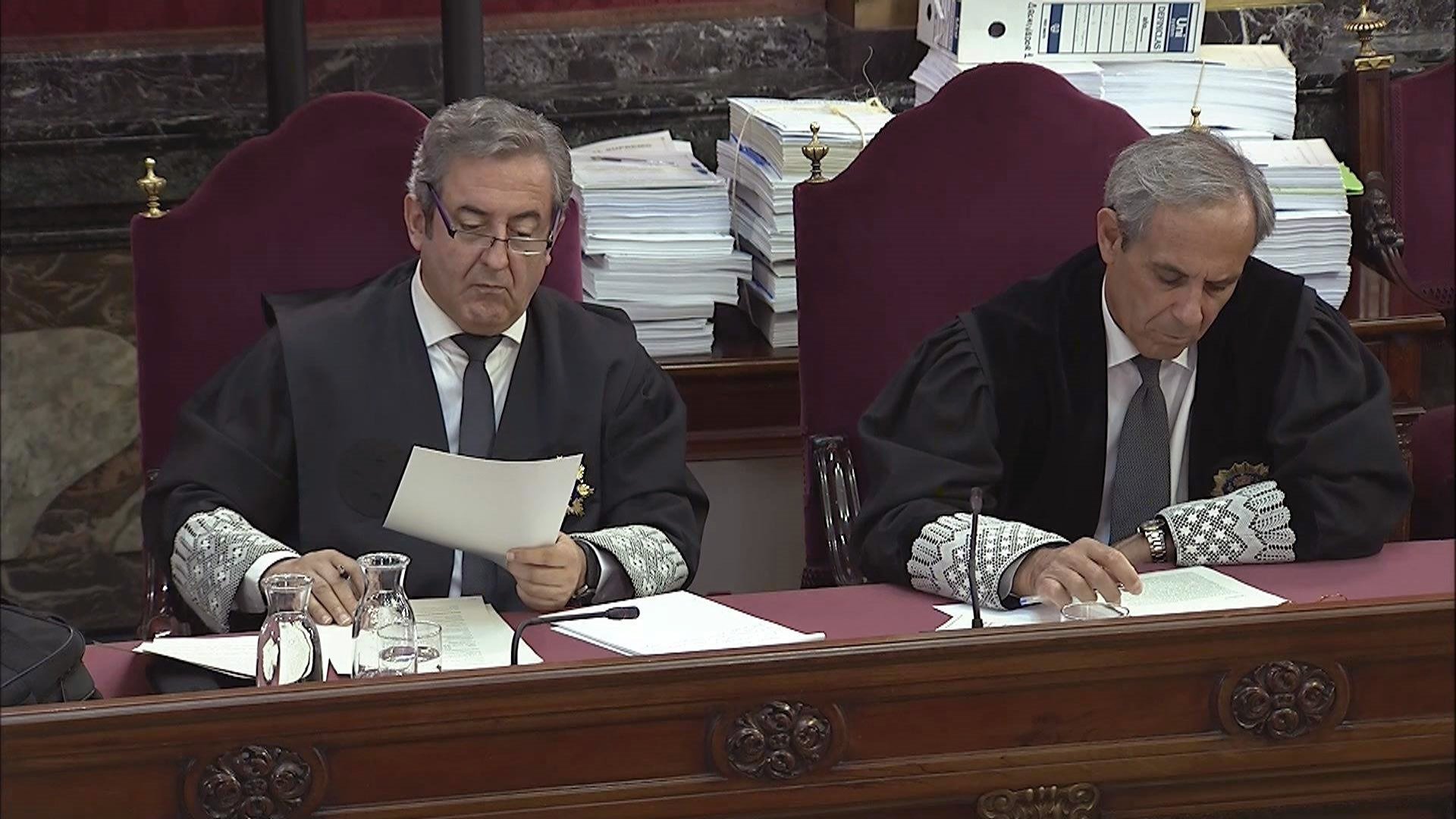The argument presented by Spanish Supreme Court prosecutor Javier Zaragoza last week before a different court to his usual one - the court of public opinion, via an article in the Spanish newspaper La Vanguardia - has received a fierce rebuttal in the same forum, in a second La Vanguardia article signed by the vast majority of the Catalan pro-independence prisoners and exiled politicians whose case Zaragoza has prosecuted and is still prosecuting: Carles Puigdemont, Toni Comín, Clara Ponsatí, Lluís Puig, Meritxell Serret, Oriol Junqueras, Raül Romeva, Dolors Bassa, Jordi Turull, Joaquim Forn, Josep Rull, Carme Forcadell, Marta Rovira, Jordi Cuixart and Jordi Sànchez.
The 15 Catalan prisoners and exiles accuse Zaragoza of a "twisted interpretation" of the law. "It is curious," they say, that "although Spanish prosecutors and judges talk so much about the law, they always forget to defend fundamental rights. It is not at all exemplary to pursue politics through the judicial system, or turn the law into a simple instrument to achieve political ends." But it is just as well, asserts the article, that "in Europe it doesn't work like this".
Zaragoza's piece in the newspaper said that it was "arbitrary and unfounded" of the Belgian judiciary to reject the extradition to Spain of exiled Catalan politician Lluís Puig, and it criticized the decision of the Belgian judge to base his sentence on the conclusions of the UN Working Group on Arbitrary Detentions, which for Zaragoza are a "simple opinion of a group of experts hired ad hoc by the defence lawyers." The prisoners and exiles remind him that the UN group consists of "independent experts" appointed by the United Nations Organization and that the Spanish state defended itself in this procedure, "a fact which signifies an unequivocal recognition of the competence of the Working Group."
Compliance with the rules
On the decision to reject the request for Puig's extradition, they claim that the Belgian judiciary "has simply limited itself to compliance with the rules" and has followed recent rulings in Europe, such as the European Court of Justice's decision on the Junqueras case, whose consequences permitted Puigdemont, Comín and Ponsatí to take their seats as elected MEPs. "Those who are mistaken - and greatly - are those who are dragging the Spanish state, and its judicial system, towards a discredit incompatible with the democratic presumption in which they try to take refuge," they warn.
The authors also deplore the fact that Zaragoza "intentionally" compared the Catalan independence movement with the terrorist group ETA in his article, a way of "depersonalizing the enemy." This is one of the "common fallatious arguments used by Spanish prosecutors and judiciary", they warn, and stress that it has been precisely "the defence of freedom and democracy" that has "paradoxically" led them to imprisonment and exile.
Far from it being the Belgian judge who is damaging European legal processes, say the Catalan authors, it is Zaragoza who is being "abusive" of the mechanisms of cooperation between states. And they conclude by telling the prosecutor: "You embody, or at least you should, an institution subject to the duty of political neutrality. Act in accordance with that neutrality, and Spanish democracy will thank you for it."

